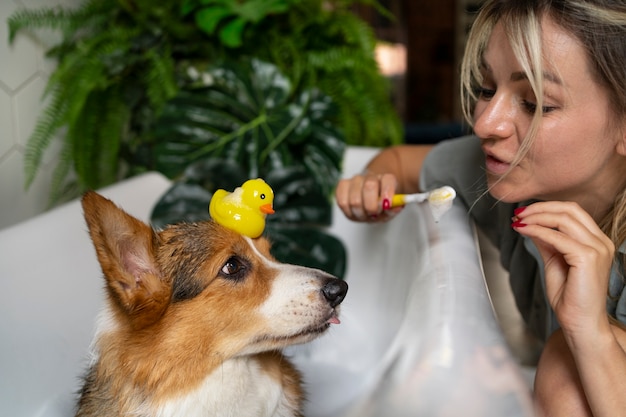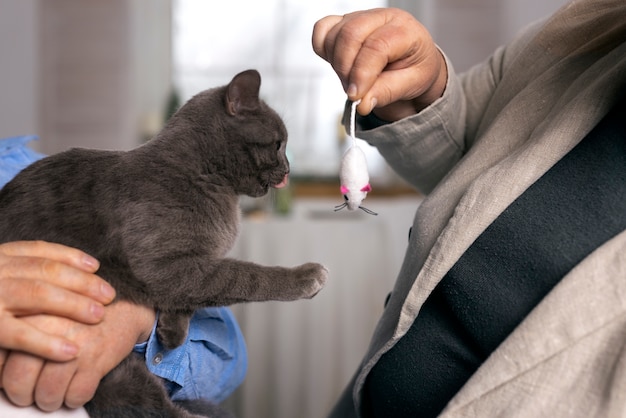How to Recognize Dehydration in Pets During Hot Florida Months

How to Recognize Dehydration in Pets During Hot Florida Months
Florida’s summer months bring soaring temperatures and relentless humidity, making it a challenging time for both pets and their owners. As the heat peaks in Lutz and surrounding communities, dehydration in pets becomes a serious risk that can escalate rapidly. Recognizing the early signs of pet dehydration is crucial, and knowing when to seek urgent veterinary care can make all the difference in your pet’s recovery. At VetCheck Pet Urgent Care Center - Lutz, located at 1809 Collier Parkway, Lutz, FL 33549, our veterinary team is prepared to handle these emergencies, especially when your regular veterinarian might not be available. Walk-ins are always welcome, and no appointment is needed for immediate care.
In this guide, you’ll learn how to identify the subtle and not-so-subtle signs of dehydration in pets, understand what causes it during the warmest months, get actionable tips for prevention, and know exactly when to visit an emergency vet near you. Whether you’re a lifelong Floridian or new to the area, these insights will help you protect your furry family members from the dangers of dehydration. For those who may notice unusual symptoms, our emergency veterinary care page offers more details about what to expect during an urgent visit.
Spotting the Signs: How to Recognize Dehydration in Pets
During the hottest days in Lutz, your pet may be at greater risk of losing fluids faster than they can replace them. Dehydration in pets can be subtle at first, but it progresses quickly, especially in the Florida heat. Key symptoms include a loss of skin elasticity, which you might notice if you gently lift the skin over your pet’s shoulder blades and it does not immediately return to its normal position. Other signs of pet dehydration are dry or sticky gums, sunken eyes, excessive panting, and lethargy. Some pets may appear weak, uninterested in food, or unusually restless.
As dehydration worsens, symptoms can escalate. Pets may vomit or develop diarrhea, which compounds fluid loss. A rapid heart rate, collapse, or difficulty walking points to severe dehydration and is a true emergency. In cats, dehydration may cause them to hide or become less responsive. With smaller pets or those that are already ill, changes may be even more subtle, so it’s important to observe closely and act quickly at the first sign of trouble.
Recognizing these warning signs early gives you the chance to intervene before dehydration becomes life-threatening. If you’re uncertain whether your pet’s symptoms warrant concern, our in-house diagnostics can provide quick answers and guide immediate treatment options.
Understanding Why Dehydration Happens in Florida Pets
Florida’s climate is unique, with high temperatures and persistent humidity from late spring through fall. Dogs and cats regulate their body temperature differently than humans; they primarily dissipate heat through panting and limited sweating from their paw pads. This means pets are especially vulnerable to fluid loss in hot, muggy weather.
Common causes of dehydration in pets in Lutz include excessive exercise outdoors, lack of access to fresh water, and being left in hot environments like cars or unshaded yards. Illnesses such as vomiting, diarrhea, or fever accelerate fluid loss, as does any underlying condition that affects a pet’s ability to drink or retain water. Some breeds, especially those with short noses or thick coats, may struggle even more in the heat.
It’s not just playtime that can trigger dehydration. Even a routine walk on a humid day or a short ride in the car can cause your pet to overheat and lose vital fluids. Senior pets, puppies, and kittens require special attention, as they are less able to compensate for rapid changes in hydration status.
How Emergency Vets Treat Dehydration in Pets
When dehydration in pets reaches a critical point, professional veterinary care is essential. Treatment approaches involve a thorough evaluation of your pet’s hydration status, often using quick in-house diagnostics to check electrolyte levels and organ function. Mild dehydration may be addressed with subcutaneous fluids, where fluids are administered under the skin and absorbed gradually.
For moderate to severe dehydration, intravenous (IV) fluid therapy is often required. This allows for rapid rehydration and correction of electrolyte imbalances under close supervision. The veterinary team at VetCheck Pet Urgent Care Center - Lutz also monitors for complications, such as kidney dysfunction or shock, which can develop quickly in dehydrated pets. Supportive care may involve medications to control vomiting or diarrhea, cooling measures, and oxygen therapy in extreme cases.
Because dehydration can be a sign of a more serious underlying issue, such as poisoning or heatstroke, our veterinarians may recommend additional tests to identify the root cause. If your pet is experiencing vomiting or diarrhea, you can read more about how we address these symptoms on our vomiting and diarrhea care page.
Immediate intervention not only rehydrates your pet but also improves their chances of a full recovery. Our urgent care vet team is ready to provide these lifesaving treatments whenever you need them, including evenings and weekends when other clinics may be closed.
Preventing Dehydration: Simple Steps for Pet Owners
Keeping your pet safe from dehydration in Lutz starts with proactive care and awareness, especially during the heat of summer. Steps include ensuring your pet always has access to clean, cool water indoors and outdoors. Replace water frequently and use bowls that resist tipping or spilling. When spending time outdoors, provide shaded areas and avoid the midday sun when temperatures are highest.
Monitor your pet’s activity level. On particularly hot or humid days, shorten walks and exercise sessions. Opt for early morning or late evening outings when the air is cooler. Never leave pets unattended in vehicles, even for a few minutes, as temperatures inside can rise dangerously fast. If your pet enjoys car rides, plan stops with water breaks and shade.
For pets prone to dehydration due to age, health, or breed, consider extra precautions. Adding water to food, offering ice cubes as treats, or using pet-safe electrolyte solutions on your veterinarian’s advice can help. If your pet has a history of urinary issues or digestive problems, regular check-ups are important to catch concerns early. Our wellness examination services can help track your pet’s hydration status and overall health, making prevention a routine part of your care plan.
When to Seek Urgent Veterinary Care for Dehydration
Some cases of dehydration can be managed at home with increased water intake and rest, but there are clear situations when professional intervention is needed. Seek immediate care from an emergency vet near you if your pet refuses water, continues vomiting or having diarrhea, appears weak or unable to stand, or shows any signs of confusion or collapse. These symptoms suggest severe dehydration or an underlying emergency that cannot wait.
Time is critical in these scenarios. Delaying care can result in organ damage or even become life-threatening. At VetCheck Pet Urgent Care Center - Lutz, we offer immediate access to veterinary professionals with walk-ins welcome and no appointment required. If you are unsure whether your pet’s symptoms warrant a visit, it is always safer to err on the side of caution and bring your pet in for evaluation.
Remember, our urgent care vet team is available when your regular veterinarian may not be, including evenings, weekends, and holidays. We are committed to providing rapid, compassionate care for all pets experiencing dehydration in Lutz and surrounding communities.
Conclusion: Protecting Your Pet From Dehydration in Lutz
Dehydration in pets is a serious concern during Florida’s sweltering months, but with early recognition and prompt action, it is preventable and treatable. Watch for classic signs of pet dehydration such as reduced skin elasticity, dry gums, and lethargy, and take steps to ensure your pet stays hydrated. If your pet displays any warning signs or if you are ever in doubt, do not hesitate to seek help from an urgent care vet near you.
At VetCheck Pet Urgent Care Center - Lutz, your pet’s wellbeing is our highest priority. Our veterinary team stands ready to deliver prompt, expert care whenever you need it, with walk-ins always welcome and no appointment needed. If you suspect dehydration or another urgent health issue, visit us at 1809 Collier Parkway, Lutz, FL 33549 or call (813) 501-5811 for guidance. For more information on what to expect during a visit, explore our emergency veterinary care services.
Stay vigilant during the hottest months, and remember that our veterinary professionals are here to support you and your pet with the most responsive dehydration treatment in Lutz. Your quick action and our expert care can make all the difference in keeping your pet safe and healthy all year long.
This blog is for informational purposes only and should not replace professional veterinary advice. If your pet is experiencing symptoms of dehydration or any sudden illness, seek immediate veterinary care.



















